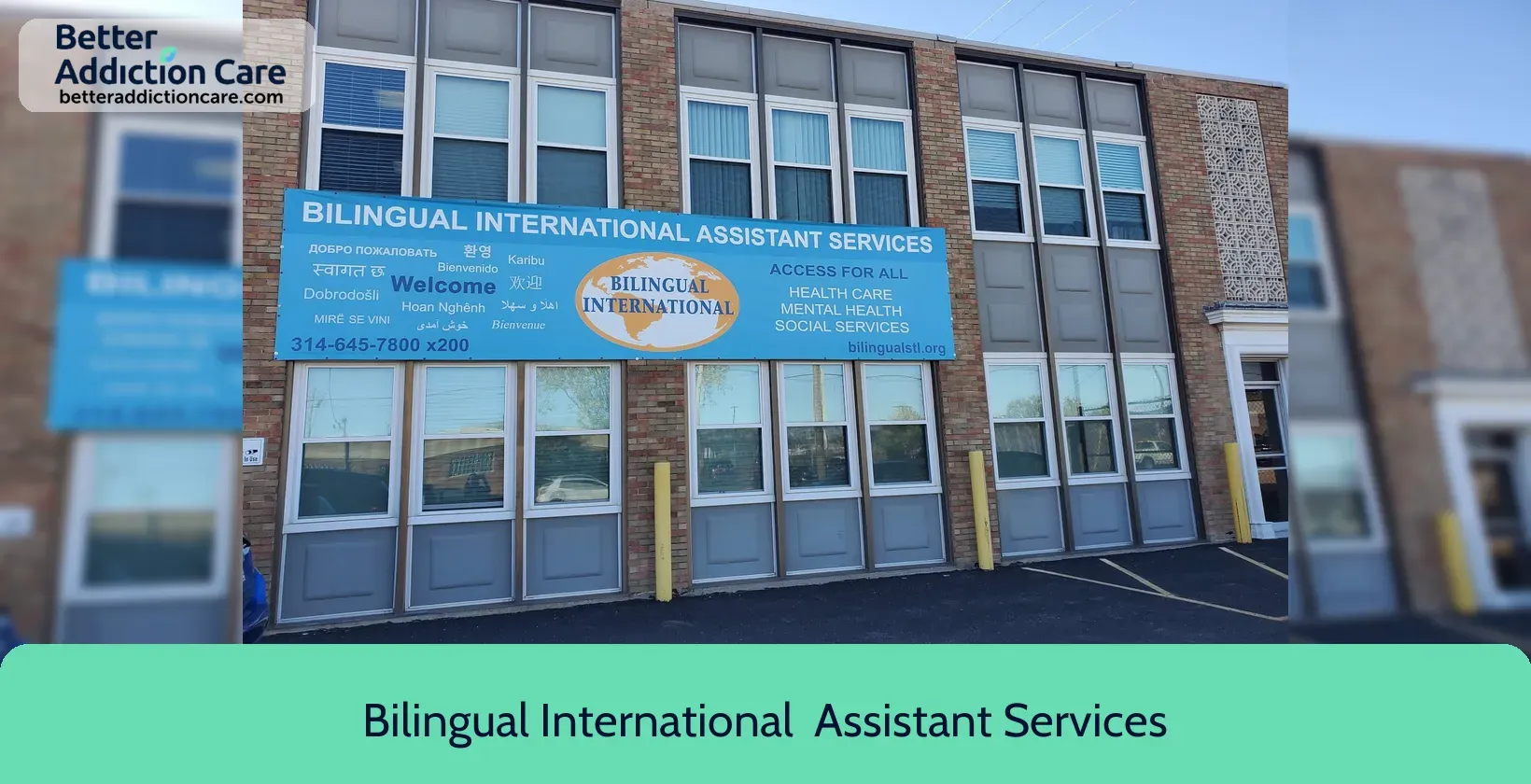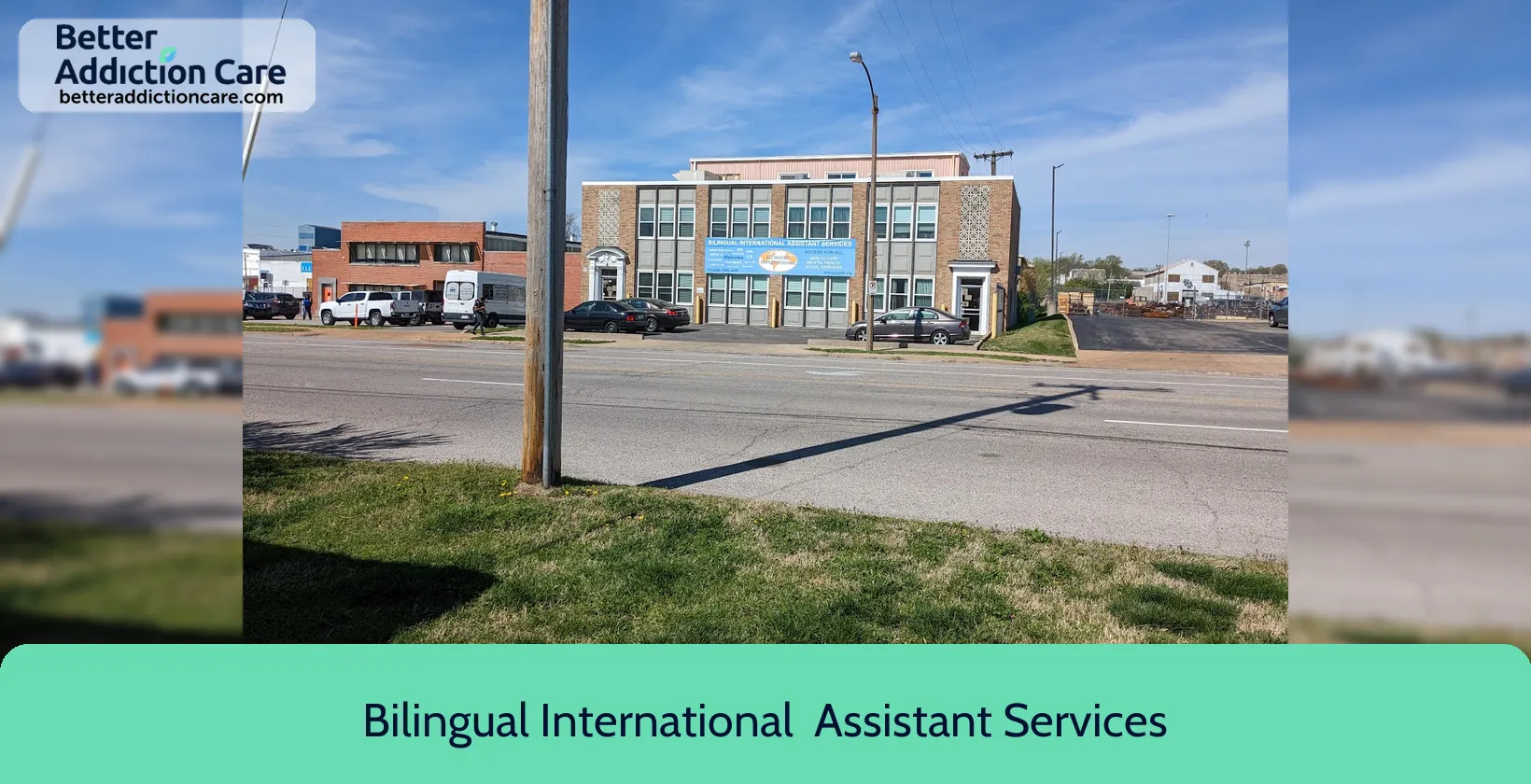Bilingual International - Assistant Services
Overview
Bilingual International - Assistant Services is a mental health treatment center for people seeking treatment near Saint Louis County. As part of their treatment modalities for recovery, Bilingual International - Assistant Services provides couples/family therapy, group counseling, and cognitive behavioral therapy during treatment. Bilingual International - Assistant Services is located in Saint Louis, Missouri, accepting county or local government funds for treatment.
Bilingual International - Assistant Services at a Glance
Payment Options
- County or local government funds
- Community Mental Health Block Grants
- Federal Grants
- Cash or self-payment
Assessments
- Comprehensive mental health assessment
Age Groups
- Children/adolescents
- Young adults
- Adults
- Seniors
Ancillary Services
- Case management service
- Diet and exercise counseling
- Family psychoeducation
- Illness management and recovery
- Legal advocacy
Highlights About Bilingual International - Assistant Services
6.71/10
With an overall rating of 6.71/10, this facility has following balanced range of services. Alcohol Rehabilitation: 8.00/10, Drug Rehab and Detox: 6.00/10, Insurance and Payments: 6.00/10, Treatment Options: 6.85/10.-
Alcohol Rehabilitation 8.00
-
Treatment Options 6.85
-
Drug Rehab and Detox 6.00
-
Insurance and Payments 6.00
Treatment At Bilingual International - Assistant Services
Treatment Conditions
- Mental health treatment
Care Levels
- Outpatient
Treatment Modalities
- Couples/family therapy
- Group counseling
- Cognitive behavioral therapy
- Dialectical behavior therapy
- Activity therapy
Common Questions About Bilingual International - Assistant Services
Contact Information
Read our Most Recent Article About Drug Addiction
DISCLAIMER: The facility name, logo and brand are the property and registered trademarks of Bilingual International - Assistant Services, and are being used for identification and informational purposes only. Use of these names, logos and brands shall not imply endorsement. BetterAddictionCare.com is not affiliated with or sponsored by Bilingual International - Assistant Services.










